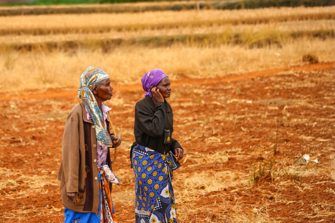#Corporate news
9M-2025: Coface records year-to-date net income of €176.3m
Coface records year-to-date net income of €176.3m, of which €52.1m in Q3-25; annualised ROATE at 12%.

Explore Coface's comprehensive Risk Dashboard, providing in-depth risk assessments for 160 countries and 13 industry sectors to make strategic decisions
#Corporate news
Coface records year-to-date net income of €176.3m, of which €52.1m in Q3-25; annualised ROATE at 12%.
#Corporate news
Coface releases its half-year financial results for 2025 with an annualised return on tangible equity at 12.6%.
#Corporate news
Coface publishes its Q1 2025 financial results, with a net income of €62.1m, for an RoATE of 12.7%. Turnover is €473m, up 2.0% at constant FX and perimeter.
#Economic publications
Wood has been added to the growing list of products subject to specific tariffs in the United States. These new measures could reshape sourcing strategies and pricing dynamics for importers and manufacturers. Find out what this could mean for your business.
#Economic publications
Nearly two decades after joining the BRICS, South Africa has failed to deliver on its development promises. Per capita GDP in 2025 is below 2007 levels, with a marked deterioration in social indicators: unemployment, growing poverty and severely degraded infrastructure. Unlike its emerging peers in Asia and Latin America, the ‘Rainbow Nation’ has remained mired in low growth, hampered by two major structural constraints: the failure of the energy system and deep distortions in the labor market.
#Economic publications
Rice prices have fallen 35% in one year to their lowest level since 2017 (around US$360 per ton) following the lifting of Indian export restrictions. After three years of extreme volatility, the market is facing a glut (541 million tons produced in 2024), pushing prices down and upsetting the balance for global producers and importers.
#Expert advice
Too often perceived as a conflictual approach or a simple cash flow operation, amicable Debt Collection actually plays an essential role in your client relationships. As long as you adopt an amicable, human and differentiated approach according to your partners' situation. Expert advice, testimonials and useful cases to help you collect your unpaid debts without jeopardising your business relationships.
#Expert advice
AI and data are powerful tools for improving business management, but their adoption remains a huge challenge for executives. Security, ROI, technological integration and digitalisation: our Risk & Smart Data experts help you transform your data into genuine growth drivers and decision-making solutions. Find out all the keys to managing your risks and stay ahead.
Managing bad debt is a challenge that every business faces. While maintaining a bad debt reserve is a common strategy, it might not provide the comprehensive protection your company needs in today’s unpredictable economic environment. A more proactive approach, such as leveraging trade credit insurance, can safeguard your business from financial instability and enhance your credit risk management strategy.
#Our solutions
When agriculture faces the complexity of global trade: dive into the experience of one of the leading American agri-food cooperatives that is reinventing its trade risk management by combining Coface's comprehensive solutions in trade credit insurance and information services. As a result, commercial decisions are made in less than 15 minutes! Analysis of a winning strategy.
Managing bad debt is a challenge that every business faces. While maintaining a bad debt reserve is a common strategy, it might not provide the comprehensive protection your company needs in today’s unpredictable economic environment. A more proactive approach, such as leveraging trade credit insurance, can safeguard your business from financial instability and enhance your credit risk management strategy.
Essential for anticipating business risks, information reports are also practical tools that support effective business management. Prospecting, sales, marketing, financial audit, securing the supply chain or accelerating your customer knowledge processes (KYC): these decision-making solutions guide you through every stage of your business.
Navigate uncertainty with Coface's global risk assessments for 160 countries and 13 sectors.
Dive into the world of global trade with Coface's Trade Talk podcast. Explore captivating discussions with trade experts, explore market dynamics, and uncover strategies for growth.
Online services for customers and brokers
Business Information
Access the business insights you need to manage credit risks across your entire business-partner portfolio and make strategic decisions with confidence.
Customer Portal - CofaNet
Coface online platform for managing your trade receivables. Full monitoring of your risks. Direct access to all tools according to your contracts.
Broker Portal
Platform dedicated to brokers for monitoring your business and managing your customer portfolio (in all countries where legally available).
Innovative and digital solutions
API Portal
Stop juggling between software applications. Explore Coface API Catalogue and Integrated Solutions for Icon by Coface and trade credit insurance.






